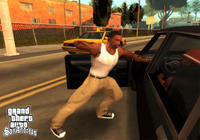Violent Video Games Deaden the Heart

I have had several parents bring up the subject of violent video games and the question is, "Should I allow my child to have those games or not." My answer has always been not. I know from my studies as a counseling student and as an adjunct Psych. Professor, the studies show that our hearts and minds are molded by what we see and do.
I have had many parents tell me that they are harmless games and that my children know it is not real. It does not matter if they believe it is real or not, it still affects the heart and mind. When a parent gives a green light to video games their kids play or the videos they watch, via MTV and others, unknowingly or knowingly, parents are reinforcing and legitimizing the unrighteous or worldy development of a very moldable mind. (Is moldable a word? If it is not it should be.) Paraphrase from Romans 12, "You are what you eat, or you become what you consume, or where your treasure is, there your heart is also.
In the October issue of Christianity Today, the article Deadening the Heart addresses this issue. Below are excerpts from the article. Click on the article title to read it all.
 Steve Johnson, author of Everything Bad is Good for You, says violent video games are good for children. He thinks that video games such as Grand Theft Auto: San Andreas may "function as a kind of safety valveÂthey let kids who would otherwise be doing violent things for the thrill of it, get out those kind of feelings sitting at home at a screen." Says Johnson: "This may have a deterrent effect on violence."
Steve Johnson, author of Everything Bad is Good for You, says violent video games are good for children. He thinks that video games such as Grand Theft Auto: San Andreas may "function as a kind of safety valveÂthey let kids who would otherwise be doing violent things for the thrill of it, get out those kind of feelings sitting at home at a screen." Says Johnson: "This may have a deterrent effect on violence."But the American Psychological Association thinks otherwise. Time spent playing violent video games "increases aggressive thoughts, aggressive behavior, and angry feelings among youth." Less than a week before the Ottawa Citizen reported Johnson's remarks, the professional society for psychologists acted on 20 years of research into the effects of violent video games. After a "special committee" reviewed more than 70 studies, the organization adopted a resolution calling for the "reduction of violence in interactive media used by children and adolescents."
APA scholars cited a study of eighth- and ninth-grade teachers. The teachers said that the students who spent time playing violent video games were more hostile than other children and more likely to argue with authority figures and fellow students. And according to another study of 600 eighth- and ninth-graders, students not normally prone to aggression are nearly 10 times as likely to get into a fight after playing a violent video game.
We support the APA resolution that asks educators to help students apply the same critical viewing skills to violent video games that can be applied to movies and television. This might be a way for youth leaders to engage their charges. Such media literacy programs not only reduce the negative effects of watching violent programming, they reduce the amount of time children watch television. The participatory nature of video games makes this critical-viewing strategy an especially difficult challenge, but outside of a complete ban on games that employ random violence (not politically possible), this is a good first step.
Don't forget, as parents you are the number one influence on your children. By the choices you make and what you decide is important to deal with or not, you influence your children one way or the other whether you want too or not.
First step. Sit down with your kid and look at all of his games. (Remember, you are what you eat.) If you filter them through the eyes of Christ or even just the eyes of a decent moral human being, you will be disgusted and will have no problem throwing them away. It is
 true. You cannot control what the play or do at a friend's house. But giving them the green light in your own home says, "I don't care." Don't let the world or the discomfort of putting your foot down be your guide. Let Jesus.
true. You cannot control what the play or do at a friend's house. But giving them the green light in your own home says, "I don't care." Don't let the world or the discomfort of putting your foot down be your guide. Let Jesus.Your Partner in developing your kid into a healthy adult
Royal


0 Comments:
Post a Comment
<< Home